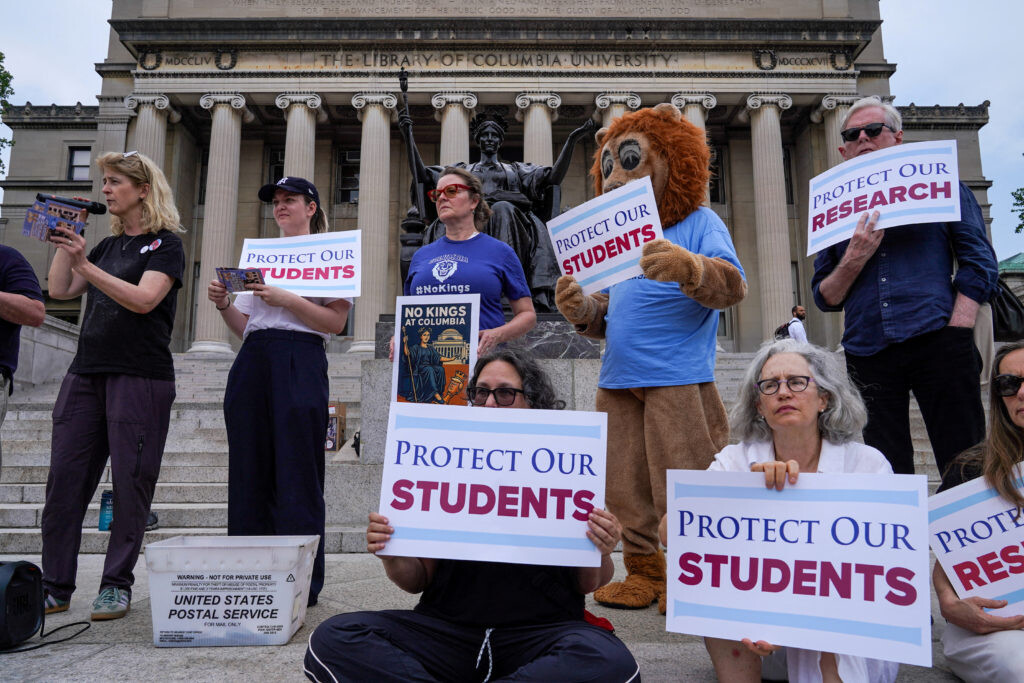
WASHINGTON, D.C. - The Trump administration has reportedly initiated a concerted effort to reshape the political and academic landscape of American higher education, leveraging federal funding as a powerful tool to pressure colleges into accepting a broad set of demands. The strategy involves asking universities to sign an "Agreement for Academic Excellence in Higher Education" in exchange for potentially substantial federal aid and other benefits.
According to the Wall Street Journal, the administration sent letters to a preliminary group of institutions, including Ivy League schools like Dartmouth, the University of Pennsylvania, Brown University, and the Massachusetts Institute of Technology (MIT), outlining the terms of the ten-point pact. The agreement presents a stark choice: adopt the government’s prescribed policies or risk the loss of crucial federal support.
Mandates Target Admissions, Enrollment, and Campus Climate
The proposed pact contains several highly contentious provisions that directly challenge established university practices and norms. Key requirements include:
Foreign Student Cap: Limiting the enrollment of international undergraduate students to 15% of the total student body. This measure, if widely adopted, could significantly impact students from countries like South Korea, which sends a large number of undergraduates to the US.
Admissions and Hiring: Prohibiting the consideration of race or gender in admissions and employment processes. This runs contrary to many diversity, equity, and inclusion (DEI) initiatives currently in place at US universities.
Standardized Testing: Mandating the submission of scores from the SAT or similar entrance exams, reversing a trend where many institutions have made these tests optional or eliminated them entirely.
Tuition Freeze: Committing to a five-year tuition freeze.
Focus on Political Atmosphere and Autonomy
Beyond admissions and finance, many of the demands center on the political climate within universities, aiming to create an environment more favorable to conservative viewpoints. These provisions include eliminating academic departments that the administration deems to belittle conservative thought.
The letters reportedly warn that while universities are free to pursue their own values if they forgo federal benefits, institutions heavily reliant on government support could face significant pressure. This is seen by critics as a direct warning of potential penalties for non-compliance.
Higher Education Leaders Push Back
The initiative has drawn immediate and fierce opposition from major figures in the higher education community. Ted Mitchell, president of the American Council on Education (ACE), which represents over 1,500 college presidents, strongly criticized the proposal's underlying premise, particularly concerning political expression and viewpoint.
"The federal government shouldn't be stepping in and sorting this out," Mitchell stated, raising concerns about the detrimental effect on freedom of expression.
This new approach follows earlier reports of the Trump administration's plans to reform research funding rules to favor universities cooperating with government policies, such as eliminating diversity programs. Analysts view the new pact as a dramatic escalation—a comprehensive, nationwide attempt to assert federal control over the fundamental academic and administrative policies of US universities, moving beyond previous, targeted actions against individual institutions. The ultimate outcome of this political maneuvering is expected to have lasting consequences for the autonomy of American colleges and the future of international education in the United States.
[Copyright (c) Global Economic Times. All Rights Reserved.]




























